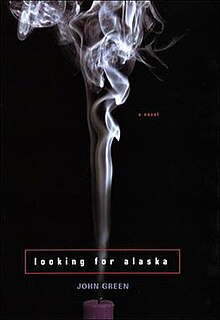I want to stress that I don't think there is anything wrong with this string of familiar characters who seem imbued with an extra dose of grabbing life by the gonads and making it sing. It's a tried and true formula for stories of self-discovery. If you don't know what I mean by "manic pixie dream girl," I encourage a trip to YouTube for that explanation. But in short, it is basically something that emerged in recent years as a character type that is injected into story lines to teach the male protagonist about life, freedom, love and all things that make one feel alive and connected. Think Natalie Portman's character in my beloved Garden State; she introduces the male protagonist to The Shins, thrusts him into unfamiliar situations to force the emergence of self identity in an effort to cope and adapt, confesses the darkness buried in her being of light, makes him feel unique, makes him question life, and gets him to do something completely freeing. That is essentially the formula for the creation of a "manic pixie dream girl."
I let it slide in Paper Towns, because Margot actually disappears for most of the story and so it becomes more about the male protagonist and his journey of self-discovery through his search for Margot. I even embraced the gender role reversal in The Fault in Our Stars where Augustus Waters fulfills this role for the melancholy Hazel Grace. However, I just couldn't get past it in Looking for Alaska.
Miles Halter leaves home to go to boarding school at Culver
Creek in Alabama. He’s paired with a roommate referred to as “The Colonel,” and soon meets
the other members of the outsiders club with whom he bonds with throughout the
course of the story. One of these group members is Alaska Young; she is
attractive, impulsive, smart and completely depressed. This was an opportunity
for Green to really explore the complications of depression among young adults,
but ultimately Alaska’s depression gets sidelined as she serves in her
obligatory “manic pixie dream girl” role of helping Miles become a real boy.
I’m not going to say that John Green should have written
this story differently, but I am going to say that he had the potential of
breaking out of the mold and really exploring the complexities of Alaska Young. Alaska never becomes an actualized character, she always exists as others need
her to for the sake of their own development.
As with all the other stories I've read of Green's, there is a strong literary component that exists as a running theme with the main action of the story. Yet, in Looking for Alaska, I felt that it was forced and tacked on in an effort to imbue some greater sense of meaning that could have just come from allowing an exploration of the full character of Alaska Young. Miles, the protagonist, is desperately in love with Alaska and she is desperately in love with her college aged boyfriend, except when she doesn't want to be - then she lets loose and embraces spontaneity over commitment. Conveniently.
Miles has an interesting character quirk in that he is a collector of final words.(Whoa now, careful with that foreshadowing!) He and Alaska have a conversation in which she mentions her fascination with Simon Bolivar's final words: "Damn it. How will I ever get out of this labyrinth!" And so ensues a pseudo-philosophical and spiritual quest to uncover what the labyrinth is and how one can escape it. The quote holds meaning for Alaska, the kind of meaning that is worth concern if anyone knows anything about depression. And this once again leads me to the loss of potential for Green to really expose this underbelly of depression; how it impacts not only the individual who is depressed, but also everyone around that person.
I don't want to give away some of the "surprising" plot twists, but I do want to say that Alaska never evolves out of this character mold that seems so familiar to John Green. This is okay, the book is entertaining and interesting, and if you're a fan of Green then you will enjoy it. However, I read it so soon after Paper Towns that it felt like the same female character that serves as the catalyst for the male protagonist's personal growth exists almost exactly the same in both stories. I have one book left to read by John Green and that is An Abundance of Katherines. I am going into that story with an open mind, an intentionally designed couple months of removal from Looking for Alaska, and maybe Green will surprise me with a story outside of what I can't help but label as a formulaic trend of writing in the YA genre that has lost its novelty on me.

No comments:
Post a Comment